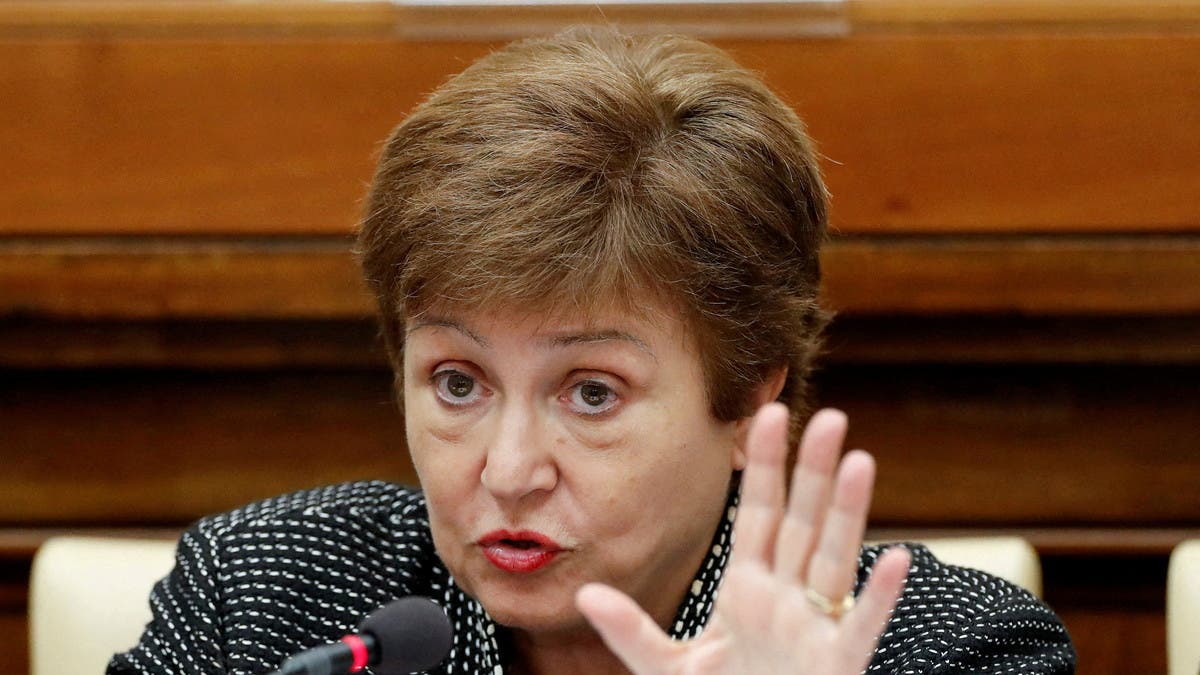The war in Ukraine is prompting the International Monetary Fund to cut global growth estimates for both 2022 and 2023 as higher food and energy prices pressure fragile economies, the IMF’s managing director, Kristalina Georgieva, said on Thursday.
Georgieva said in a “curtain raiser” speech for next week’s IMF and World Bank spring meetings that the fund would downgrade its growth outlooks for 143 economies representing 86 percent of global economic output, but said most countries will maintain positive growth.
For the latest headlines, follow our Google News channel online or via the app.
Georgieva, who previously warned that the war would drag on growth this year, said Russia’s invasion of Ukraine was “sending shockwaves throughout the globe” and dealing a massive setback to countries struggling to recover from the still-raging COVID-19 pandemic.
“To put it simply, we are facing a crisis on top of a crisis,” Georgieva said in remarks to the Carnegie Endowment for International Peace in Washington. “In economic terms, growth is down and inflation is up. In human terms, people’s income are down and hardship is up.”
The IMF, which is set to release new economic forecasts on Tuesday, anticipates that inflation, now a “clear and present danger” for many economies, will remain elevated for longer than previously expected.
Georgieva did not provide a specific target for global growth, but has said previously it would be lower than the 4.4 percent the IMF forecast in January, a figure already reduced by half a percentage point due to lingering supply chain disruptions caused by the pandemic.
“Since then, the outlook has deteriorated substantially, largely because of the war and its repercussions,” she said. “Inflation, financial tightening and frequent, wide-ranging lockdowns in China – causing new bottlenecks in global supply chains – are also weighing on activity.”
The threat of fragmentation
Georgieva also warned of a major new complication, the fragmentation of the global economy into geopolitical blocs, with differing trade and technology standards, payment systems and reserve currencies.
Similarly, US Treasury Secretary Janet Yellen raised concerns on Wednesday about a “bipolar” global economy with the United States and democratic allies on one side, and China and other state-led economies on the other.
Georgieva said such a fragmentation was the biggest threat to the post-World War Two, US-led economic order governed by the IMF, the World Bank, and other institutions created at the end of that conflict.
“Such a tectonic shift would incur painful adjustment costs. Supply chains, R&D, and production networks would be broken and need to be rebuilt,” she said. “Poor countries and poor people will bear the brunt of these dislocations.”
The shift is already impairing the world’s ability to work together to resolve the Ukraine war and COVID-19 crises and threatens to derail cooperation on climate change and other challenges, she said.
Georgieva said food insecurity is a “grave concern” because of disruption to grain and fertilizer supplies from Ukraine, Russia and Belarus, pressuring the weakest countries. Without action on a multilateral plan to bolster food supplies, many countries face more hunger, poverty and social unrest.
Read more:
New Pakistan govt under PM Sharif may need to roll back fuel, power subsidies
Quarter of billion face extreme poverty in 2022: Oxfam
World Bank preparing $1.5 billion aid package for Ukraine

 World2 years ago
World2 years ago
 World2 years ago
World2 years ago
 Entertainment7 years ago
Entertainment7 years ago
 World7 years ago
World7 years ago
 Entertainment7 years ago
Entertainment7 years ago






